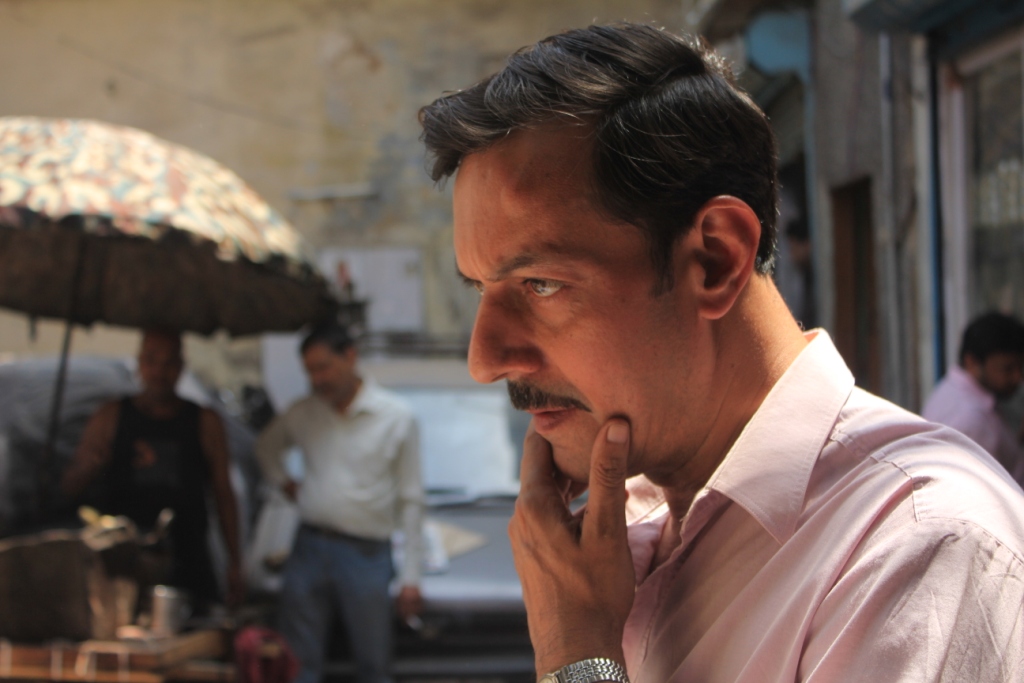BANGALORE: Is Hamlet you and me and everyone in between? Is he, denuded of his geography and history, just someone torn between his possibilities and his realities? Aren’t we all? Is he a man of suppressed humour, someone craving to laugh at the injustice of it all, aching to discard the accoutrements of assumed and imposed power?
In Elizabethan times, a clown was a symbol of ignorance but in Shakespeare’s hands, he became the speaker of discomforting truths, a voice of unvarnished frankness, a social commentator. In Hamlet too, the clownish gravediggers are in fact digging for truths that have been shoved beneath a shroud of silence. How interesting then that the clown that was just a metaphoric counter-point in Shakespeare’s world is plucked by film maker, actor and director Rajat Kapoor and turned into a central protagonist. In his play Hamlet-The Clown Prince, Hamlet is a marginalised comic who must blend pathos and humour, worldly wisdom, mime, irony, Chaplinesque melancholy and gibberish to make sense, to validate his presence in the scheme of the universe.
For Rajat Kapoor, a Film and Television Institute Of India (FTII) graduate, theatre is a natural extension of his love for story telling. As a theatre director, he interprets stories that cinema cannot narrate. But even in his cinema, the lines between film and theatre merge occasionally so you see a bit of Hamlet in Mithya and a bit of Fellini in Hamlet-The Clown Prince. His film Ankhon Dekhi has been in the news too for winning the nod for Best Film at the Annual ImagineIndia Film Festival in Madrid. The film’s music director Sagar Desai also won the Best Music award for his compositions.
We caught up with Kapoor to decode the process that led him to revise a monumental tragedy as a tragi-comic, devised piece. He spoke also on films and the uncompromised grit that never lets him give up on cinema despite the odds. And on gender issues, the country is facing at the moment.
On gender stereotyping in cinema
We cannot say that TV and cinema cause gender crimes but yes, cinema affects life and life impacts cinema. The fact is that we are a deeply sexist society. No matter how educated we are, there is a wild animal just under the surface, waiting to strike. The issue is a fundamental lack of education and the education I refer to is not about learning to read and write. It is bigger than that. Maybe in another 30 or 40 years, we will talk about a just society and equal rights for women. Right now, there is a jungle rule out there. There are primitive battles being fought in India that Europe was perhaps facing a hundred years ago. One of my friends who is usually forgiving of what Hindi cinema dishes out was horrified by a recent film and the misogyny it peddled. And yet the film went on to make over 70 crore rupees in its first week! What does that tell you about us? We are a nation that kills in the name of religion and discriminates on the basis of colour, caste, gender. Films and television are just a small part of this reality.
On his cinematic teachers
When I was a student at FTII, Mani Kaul and Kumar Shahani would come to teach us and whatever I know of cinema, has come from them. I wanted to work with them and be like them. I worked in Kumar’s Khayal Gatha and Mani’s Nazar and even my initial films like Private Detective and Tarana were influenced by them. It is only with my play C For Clowns that I began to find my own voice. More than what they did with cinema as a medium, their attitude towards cinema has taught me how to approach film-making. They made abstract films and did not see too many commercial releases. Mani had not made a film in the years leading to his death and Kumar Shahani too has not had a release in a long time but they did not compromise the courage of their conviction or say “let me now do something else.” They never diluted their vision, never gave in.
On the tyranny of commercial cinema
It is heart-breaking but there is no way out. I can make a mainstream film with a big star but I make small films so this is a fate that I have chosen. A film you invest love and passion in does not get the visibility it deserves. And you just go on to the next one because, this is how you have chosen to work. Ankhon Dekhi did not get a nod at the National Awards though for the sake of my producer, I had hoped it would. It did not get to enough theatres but the love I got from people on Facebook, Twitter, during select screenings, festivals, from those who watched pirated downloads, is unbelievable. That is I guess, the ultimate reward.
It is a film that will live on and be loved even more in retrospect and my team and I are proud that we made it. On a recent flight to Madrid, I saw, Mani Kaul’s Duvidha again and was blown away. That a film made over 30 years ago can still stun you is a legacy worth aspiring to.
On Ankhon Dekhi
It is based on a simple premise that we all grapple with at some point, “Do we believe in what are told or in what we have lived and experienced?” Just a simple example. We can talk forever about the nuances of cooking but it is only when you see turmeric changing colour in a pan will you ‘know’…the maza is in the knowing of it, like everything else in life. I lived for years with this idea of a man who suddenly wants to believe only in what he has experienced. But it was only when I placed him in the context of a joint family that things quickly came together. I have lived as a child in a small house like the one Bauji lives in and I have a lot of warmth and nostalgia for a milieu like that. Then I found the cast and no, we did not do any workshops. Nor do I believe in teaching actors how to act, but yes, I cast very well. It is the most exciting thing to discover fantastic actors during auditions. Maya Sarao who played Rita blew us away with her audition. She brought tremendous instinct to the part, as did all the actors. We improvised a lot on the sets and I chose from what the actors gave me. A lot of people mistook Ankhon Dekhi to be a realistic film but it is actually very stylised. It has the quality of a fable and my production designer Meenal Aggarwal and cinematographer Rafey Mehmood had a lot to do with the visual balance. Lyricist Varun Grover and music director Sagar Desai gave the film so much character. I love morning ragas and we enjoyed working with Lalit and Vihag. The film, however, had a very organic process of coming together, beyond what we had imagined or intended. We are lucky that we were around to see it.
On Hamlet, The Clown Prince
We didn’t start thinking that it would be a funny play. You work with an instinct and it could be all wrong. When you start writing a novel, you have a few themes, a few ideas, maybe even a plot but when you actually begin, it is the novel that writes you. You are just a tool then and if you are smart, you go with the flow. You write how the novel wants you to write it. The same is true of making a painting, a musical composition, a film or a play. The rehearsals for this play are always MAD! And this time we have a new clown, Vinay Pathak, so it is already a new play! I love bringing my plays to Ranga Shankara because the way people wait for you at the foyer and connect after a performance is very warm and beautiful.
On what keeps him going
I keep writing and working to remain sane. Luckily, I can write, so creating something gives one the feeling that life is not being frittered away. All artists have odds to face and very often these very things become catalysts for great work. The thing is to keep your drive, hunger, perseverance and your sanity (and a little bit of insanity too) alive. And then, if there is something in you, it will find an expression; If not, well then, one will just have to accept one’s mediocrity.
Reema Moudgil works for The New Indian Express, Bangalore, is the author of Perfect Eight, the editor of Chicken Soup for the Soul-Indian Women, an artist, a former RJ and a mother. She dreams of a cottage of her own that opens to a garden and where she can write more books, paint, listen to music and just be silent with her cats.









 with
with